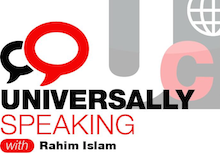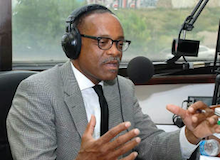

Rahim Islam is President/CEO of Universal Companies, one of the largest African-American led businesses in Philadelphia, employing nearly 650 professionals across disciplines such as education, real estate, community development, social work, technology, finance, and preventive health. He has been at the forefront of resolving many of the community and social issues facing Philadelphians and currently works directly with a number of organizations in the areas of childcare, youth and recreation programs, drug and alcohol prevention, faith based efforts, block associations, political activity, and k-12 education. He can be reached through his website, www.universalcompanies.org. You can also follow him on Twitter at www.twitter.com/rahimislamuc and Rahim Islam on Facebook.

